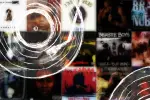As of late, social media has been flooded with videos and posts exposing problematic individuals. Cancel culture is playing a part in calling out individuals for racist, sexist, homophobic and other indecent actions. One term that reoccurs in these conversations is “Karen.” While the term has made an appearance in memes long before 2020, it is now being used more frequently to call out women — specifically, white women — causing a scene in public or using their privilege to get special treatment. To be more socially aware and become a better ally, it is necessary to understand what a Karen is and how to avoid mimicking their behavior.
What is a Karen?
Dictionary.com acutely defines the term Karen as a derogatory word for an angry, obnoxious, white woman who attempts to use her privilege to get what she wants or control others’ behavior.
Karens are often depicted in memes as middle-aged, white soccer moms donning sunglasses and short bobs, or the Karen hairstyle. Pictures of the iconic look usually feature the famous Kate Gosselin from the TLC show “Jon and Kate Plus Eight.”
Karens have been recorded doing everything from throwing a tantrum in Walmart after being asked to wear a mask to calling the police on a Black man after being asked to leash her dog. Karens use their privilege and perceived superiority to irrationally lash out at others, complain to managers and act dramatically.
Where does the term Karen come from?
While the origin of the term is speculated to have stemmed from a quote in “Mean Girls,” Karen has been a part of meme culture since the term was popularized in 2014. What originally started out as a meme about a white lady rudely asking to speak with a manager has manifested itself in the form of actual videos and stories of women threatening to call the police (on Black people, usually) for no reason. Thanks to the quick accessibility of a smartphone, videos of entitled white women are regularly going viral, and the Karens in our society are making themselves known. Whether it be at the supermarket, at the park or in traffic, the entitlement some white women feel does not limit itself to restaurants.
What is the history behind the term?
While the term Karen has only existed within the last decade, other terms labeling the toxic actions of a white woman extend all the way back to the time of slavery. Before there was Karen, the name used to refer to disrespectful white women was “Becky.” Becky became a popular term when it was used in the opening lyrics of Sir Mix-a-Lot’s hit song, “Baby Got Back.” Before that, Black people who were enslaved used the term “Miss Ann” in reference to white women who tried to exert power over them. The coinage of these terms by the Black population is both clever and necessary. In a time when Karen incidents happen far too often, having a shameful word to quickly call out this behavior is a must. Outing someone’s actions as Karen-like might make them mad, but might also convince them to rethink their next move.
How has the term been incorporated into our society?
In tweets, Snapchat stories and Instagram posts, individuals who have had an experience with an entitled white woman are quick to refer to her as a Karen. Karen memes appear on every social media platform and have been around for years, so it’s no surprise that most individuals under 25 know what it means. Black Twitter has also been known to help tweets about Karen sightings go viral within a matter of days.
There is a Snapchat and Instagram filter for nearly every concept under the sun, and the idea of a Karen is no different. There are the obvious Karen filters that mock the canon Karen hairstyle. There is also a filter that determines what percent Karen you are by asking questions like, “How do you react when a waiter brings you the wrong food?” Whether it’s a new filter or a term in a caption, the idea of the Karen is familiar among younger generations.
How do others feel about using the name in this way?
Those who share a name with the infamous meme might feel uncomfortable or slighted at times, but in no way can they imagine how the marginalized groups at the brunt of a Karen’s actions might feel. Though the name has a negative connotation in context, Karens who act like respectful, antiracist human beings should not have to worry about facing backlash in their daily lives.
Will the term stick around in the future?
According to recent news, a new movie titled “Karen” is in the works and will feature Taryn Manning, who plays Pennsatucky on “Orange Is the New Black,” as the lead character. The movie is about a woman, Karen White, who terrorizes her new Black neighbors. The movie embodies what it means to be a Karen and will hopefully be an eye-opening experience for white women across the country.
While the term might lose its popularity as time goes on or be replaced by another name, the underlying concept will, unfortunately, not go away. Hopefully, in the future, Karens can be more mindful of their actions and keep dramatic episodes to a minimum.
How can individuals avoid becoming a Karen?
Karens usually feel entitled and stubborn and will act ruthlessly to get the outcome they desire. The typical behaviors of a Karen include speaking with a manager, calling the cops, reporting minor inconveniences and throwing a fit in public. The next time you receive the wrong item, get the wrong food or your service takes longer than expected, consider showing a bit of empathy and compassion toward the workers instead of lashing out.
One important resource that can be used to avoid acting in line with “Karen” behaviors is dontcallthepolice.com, which features an extensive list of other numbers to call in your city instead of the police. It is equally as important to call out racist, problematic family members who might unintentionally act like a Karen. Finding different solutions for the problem, calming them down and suggesting other numbers to call instead of the police are just a few ways that individuals can mitigate the actions of a potential Karen.
Because of the explosive emergence of racial tensions following the tragic death of George Floyd, allyship between races is important now more than ever. The wave of antiracism and compassion that millennials and members of Generation Z are supporting is a new way for individuals to see and live in the world. Being a good ally means staying educated, practicing common courtesy and not being afraid to call out a Karen when you see one.

















